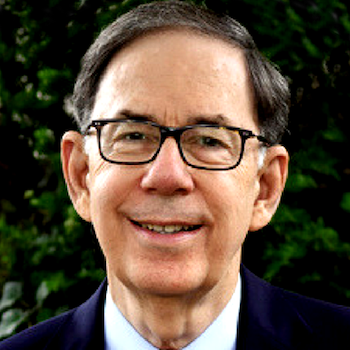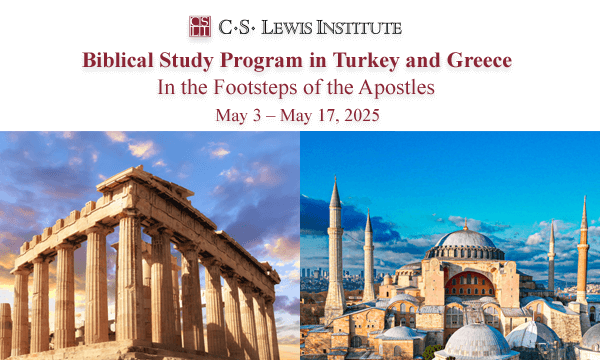Back to series

Recommended Reading:

Download or Listen to Audio
Knowing God Personally
Click here to open a Print - Friendly PDF
My past two articles in Knowing & Doing were titled “Who is God?” This is the central question of our day, and many believers do not have an adequate answer for it. The articles sought to give a very basic answer to that question from the Old and New Testaments. But simply knowing about God is not adequate for life with God; we must know Him personally. Thus we need to ask, how can I know God?
The Call to Know God
When we speak of knowing God, it is important to understand that we are not talking about abstract or speculative thought concerning God or mystical experiences but about coming alive to God through Jesus Christ and surrendering ourselves to Him in grateful love (Rom. 12:1). As John says, “Whoever has the Son has life; whoever does not have the Son of God does not have life” (1 John 5:12).
1We must also understand that knowing God is not an optional part of the Christian life; it is the Christian life. Jesus said, “And this is eternal life, that they know you, the only true God, and Jesus Christ whom you have sent” (John 17:3). The English word know in this verse is a translation of the Greek word ginosko, which, in this context, means an experiential knowing, not simply an intellectual understanding of facts about God or Jesus or the Bible. In other words, it refers to an “I-Thou” relationship.
This relationship begins when we come alive to God -- that is, when, by grace, we are awakened from the state of spiritual death into which everyone is born, and receive the eternal life Jesus offers to those who trust in Him for salvation. The first part, recognizing and turning from our sins, is repentance; the second part, trusting in Jesus and His atoning death on the cross to forgive our sins, is faith. Coming alive to God requires both. Jesus described this as being born from above or born of the Holy Spirit. It means birth into God’s family and entrance into His kingdom (John 3:3–8). Without rebirth by the Holy Spirit, a person cannot see, perceive, understand, or know God or His kingdom.
The Call to Go Deeper
As vitally important as the new birth is, that is not the focus of this article. Here I will address what is involved in growing to know God more deeply after the new birth. This is a major and pervasive need in the American church today.
 The metaphor of birth provides a helpful way of understanding fuller implications of what it means to know God and to grow in that relationship. Just as a human being is physically born into the world and moves through a developmental cycle from infant to child to adolescent to adult, so a child of God is born spiritually and is called to move through a similar developmental cycle. These stages are mentioned in the New Testament. Paul, for example, makes a distinction between “the mature” and “infants in Christ” (1 Cor. 2:6; 3:1), and the writer to the Hebrews does the same (Heb. 5:11–14).
The metaphor of birth provides a helpful way of understanding fuller implications of what it means to know God and to grow in that relationship. Just as a human being is physically born into the world and moves through a developmental cycle from infant to child to adolescent to adult, so a child of God is born spiritually and is called to move through a similar developmental cycle. These stages are mentioned in the New Testament. Paul, for example, makes a distinction between “the mature” and “infants in Christ” (1 Cor. 2:6; 3:1), and the writer to the Hebrews does the same (Heb. 5:11–14).
John distinguishes between “little children,” “fathers,” and “young men” (1 John 2:12–14). What does this mean? Spiritually the newest infant in Christ knows God, but not very well. As this baby grows in grace, he or she will progress toward maturity and, in doing so, will come to know God better and better. We have probably seen this if we have been believers for a while. What a joy it is to encounter an infant in Christ, a new convert, eager and zealous for the things of God. But what a blessing to meet a father or mother in Christ, a mature believer who has faithfully walked with God for decades and whose life is characterized by a degree of love, joy, peace, patience, kindness, goodness, faithfulness, gentleness, and self-control that is truly Christlike! This kind of mature relationship with God is what every believer is called to pursue.
The opening chapters of Genesis paint a beautiful picture of Adam and Eve enjoying a personal relationship with God. The story of God and Abraham does the same. But Moses and David open a window into their hunger to know God more intimately. On Mount Sinai, Moses cried out to God, “If I have found favor in your sight, please show me now your ways, that I may know you,” and God responded with an extraordinary revelation of Himself (Exod. 33:13; 34:7–9). Though he was by no means perfect, King David’s life (1 & 2 Samuel) and his many psalms reveal a deeply personal relationship with God and a longing for Him: “O God, you are my God; earnestly I seek you; my soul thirsts for you; my flesh faints for you, as in a dry and weary land where there is no water” (Ps. 63:1). Their hunger for God is an example given to encourage our desire for God (Rom. 15:4).
Knowing God more deeply was not the privilege of only a few luminaries in the Old Testament. God called all of His people to know Him personally and love Him supremely with heartfelt devotion. He called Israel to “love the Lord your God with all your heart and with all your soul and with all your might” (Deut. 6:5). And through Jeremiah we hear,
Thus says the Lord: “Let not the wise man boast in his wisdom, let not the mighty man boast in his might, let not the rich man boast in his riches, but let him who boasts boast in this, that he understands and knows me, that I am the Lord who practices steadfast love, justice, and righteousness in the earth. For in these things I delight, declares the Lord.” (Jer. 9:23–24)
God delights when His people truly know Him, love Him, and enjoy the blessings of His faithful love, justice, and righteousness.
A notable New Testament example of hunger for God is the apostle Paul. Near the end of his life, Paul said that his greatest passion was “that I may know him and the power of his resurrection, and may share his sufferings” (Phil. 3:10). Paul had had a dramatic encounter with Christ thirty years earlier on the road to Damascus, and he had had several other experiences with Him afterward, but he longed to know Him more deeply. His example shows us that no matter how long or how well we have known the Lord, there is always more.
Paul’s longing to know Christ points the way for us as we seek to know God today. We see God most clearly and know Him most nearly through His Son, Jesus Christ. Jesus said, “Whoever has seen me has seen the Father” (John 14:9), and Paul says, “He is the image of the invisible God,” and “in him all the fullness of God was pleased to dwell” (Col. 1:15, 19).
How to Know God More Deeply
Getting to know God more deeply doesn’t happen overnight; it takes time. As noted above, Paul had known Christ for many years when he said his passion was to know Christ better. He went on to say, “Not that I have already obtained this or am already perfect, but I press on to make it my own” (Phil. 3:12). Nor is getting to know Christ better an automatic process; it takes real effort. Is effort contrary to grace? No. Grace is opposed to earning (law) but not to effort. Effort is a vital part of how grace operates in sanctification. Thus Paul, the apostle of grace, went on to say to the Philippians:
Not that I have already obtained this or am already perfect, but I press on to make it my own, because Christ Jesus has made me his own. Brothers, I do not consider that I have made it my own. But one thing I do: forgetting what lies behind and straining forward to what lies ahead, I press on toward the goal for the prize of the upward call of God in Christ Jesus. Let those of us who are mature think this way, and if in anything you think otherwise, God will reveal that also to you. (Phil. 3:12–15)
But (lest we fall into law and self-generated-works righteousness) we must note well, and always remember, that this “straining and pressing on” is not merely unaided human willpower. Rather, it is rooted in the deep work of God in our hearts, arousing hunger and desire and drawing us to engage our wills and strength to seek Him, as Paul had earlier said when he urged the Philippians to “work out your own salvation with fear and trembling, for it is God who works in you, both to will and to work for his good pleasure” (Phil. 2:12–13). Doing this, of course, is utterly dependent upon our being filled with the Holy Spirit daily, for He alone can supply the power we need (which Paul emphasizes in Romans 8, Galatians 5, and Ephesians 5). And the rewards of our Spirit-empowered efforts far transcend the greatest earthly pleasures!
Paul’s words reinforce the observation that there is a sense in which a person is as close to God as he or she really wants to be. But it is not just Paul who urges us onward. God told Israel, “You will seek me and find me, when you seek me with all your heart” (Jer. 29:13). Jesus told His disciples, “Ask, and it will be given to you; seek, and you will find; knock, and it will be opened to you” (Matt. 7:7). In each case, those who seek are the ones who find. And if we don’t seek, we will not find.
How do we press on? God offers everything we need in order to grow into deeper fellowship with Him and His Son, but we must embrace it. He gives the milk, but we must drink it. This is what Peter meant when he said, “Like newborn infants, long for the pure spiritual milk, that by it you may grow up into salvation—if indeed you have tasted that the Lord is good” (1 Pet. 2:2–3).
What is the spiritual milk we should long for? Peter is using the image of “newborn infants” to say that just as babies need their mother’s milk to grow up physically, so believers need spiritual milk to grow up spiritually. In light of his statements in 1:23–25, it seems very likely that the milk Peter has in mind is the Scriptures, but the way he describes it, he may well mean all the resources necessary for healthy spiritual growth.
The Holy Spirit
Before we look at the essentials that God provides, let’s note their source. It is the Holy Spirit, who brings us to new life in Christ in the first place. But that is only the beginning. When Jesus returned to heaven, He handed over to the Holy Spirit His role of teaching, nurturing, strengthening, guiding, and encouraging His followers; the Holy Spirit brings us into union with Christ and is thus called the Spirit of Christ (Rom. 8:9–10). The Spirit now dwells in us and applies in our lives all the benefits that Christ secured for us on the cross: He assures us of forgiveness and salvation, reveals Christ to us in ever-deeper ways, empowers us for holy living, imparts spiritual gifts for ministry and kingdom mission, and guides and directs us to glorify Christ in everything we do — and much more.
Scriptures
What then, are the main sources of spiritual milk that the Spirit gives to mature us in grace and help us know God more intimately? The Holy Scriptures are first. Communication is essential for knowing anyone, including God; and it is primarily through the words of Scripture that God speaks to us. These are God-breathed words that the Holy Spirit inspired holy men of old to record over the centuries, words that the Spirit now illuminates our minds to understand and empowers us to obey.
The Scriptures are our only reliable source of knowledge about who God is; what He is like; what His will is; what His plans and purposes are; what He has done in the past; what He will do in the future; who we are; what life is all about; how we can know, love, and serve Him; what are the many promises He gives us; and how we can fulfill His purposes in the world. Accordingly, they are also God’s chief instrument for building our faith in Him. The Scriptures are God’s ultimate and final authority for what we are to believe and how we are to behave; they are our lifeline in this fallen world.
Prayer
If the Scriptures are God’s main way of communicating with us, prayer is our primary way of communicating with Him. It is another essential means for knowing God better. Prayer has been well described as “an offering up of our desires unto God, for things agreeable to his will, in the name of Christ, with confession of our sins, and thankful acknowledgment of his mercies.”2 Often, however, “we do not know what to pray for as we ought,” thus we need the Holy Spirit to pray for us and to guide us in our prayers (Rom. 8:26).
 The Spirit’s normal way of guiding us in our prayers is by prompting us through the Scriptures to pray for things that are agreeable to the will of God and will be granted (1 John 5:13–14). This seems to happen more often when we are quietly listening for His word on a particular matter. The Psalms are called “the prayer book of the church,” because they give us so many examples of what to pray for across the whole range of life’s experiences. And the many promises of God throughout the Bible give us even more. As we walk with God through the ups and downs of life, lifting up our prayers to Him in faith and receiving His answers, our experience with God and our trust in Him grow. And, as the years pass, we develop a history of personal dealings with God that deepens our knowledge of Him, our faith in Him, and our love for Him.
The Spirit’s normal way of guiding us in our prayers is by prompting us through the Scriptures to pray for things that are agreeable to the will of God and will be granted (1 John 5:13–14). This seems to happen more often when we are quietly listening for His word on a particular matter. The Psalms are called “the prayer book of the church,” because they give us so many examples of what to pray for across the whole range of life’s experiences. And the many promises of God throughout the Bible give us even more. As we walk with God through the ups and downs of life, lifting up our prayers to Him in faith and receiving His answers, our experience with God and our trust in Him grow. And, as the years pass, we develop a history of personal dealings with God that deepens our knowledge of Him, our faith in Him, and our love for Him.
The Church
As vital as Scripture and prayer are, they are not enough. The church is meant to be a vital incubator for growing in the knowledge and love of God. The church was born at Pentecost through the Spirit-empowered preaching of the Holy Scriptures. The church is neither a building nor an institutional bureaucracy. The church is Christ’s body on earth, the community of the spiritually reborn, where God is worshiped, His word is faithfully preached, and baptism and the Lord’s Supper are properly celebrated. In the church, the Spirit empowers the preaching of the Scriptures, enlivens our worship and communion with the Father and the Son, deepens our bonds of fellowship with other believers, enables us to care for and minister to one another in love, and sends us out into the world on mission. And much more! This community of Christ is our family. In it we meet Christ in one another and experience His transforming power together.
Seeking God
Are you content with your Christian life, or do you long for something more? Do you hunger and thirst for God? Is He the desire of your heart? Do you really want to know Him more intimately and follow Him more faithfully? The pursuit of God is a prerequisite for those who want to go deeper with God. He invites us to seek Him. He shows us the road to travel. And He provides the spiritual nourishment for the journey. But these will do us little good unless we make time in our hurried, distracted lives to use them. Many of us need to take the advice of Dallas Willard: “Hurry is the great enemy of the spiritual life in our day.
You must relentlessly eliminate hurry from your life.”3 Jesus was never in a hurry, and we are called to walk in His steps and follow His example. This does not mean withdrawing from normal life and adopting a monastic life. Jesus didn’t do that, nor did Moses, David, Peter, or Paul. They led active lives in the world, but their lives were not filled with the clutter, distractions, and chronic busyness that fills our lives today. They were focused, they had priorities, they marched to the beat of a different Drummer; they sought to please an audience of One. No matter where they were or what they were doing, their inner compass was oriented toward God—His presence, His will, and His purposes.
Is that what you long for? If the desire of your heart is to know God more intimately, that is a sign that the grace of God is drawing you. Your part is to respond by setting yourself to seek after and pursue Him (Matt. 6:33). Those who seek will find (Jer. 29:13; Matt. 7:7).
Practical Tips to Help you Know and Follow God
The following suggestions, drawn from Scripture and demonstrated over many centuries of church history, will be helpful as you seek Him in the days ahead:

- Worship God every Sunday in a church that is orthodox in its beliefs, spiritually alive, and preaches God’s word faithfully. Build Christ-centered friendships there, and join a Bible study or prayer group composed of people who want to know God better (Heb. 10:24). Find a couple of like-minded believers (of your own gender) and meet regularly to pray and encourage one another in your pursuit of Christ.
- Read Scripture daily, asking God to open the eyes of your heart and teach you (Ps. 119:18; 1 Cor. 2:12; Eph. 1:16–20). This includes learning to meditate on God’s Word and memorize key verses. Meditation takes biblical truth deeper into our minds and hearts with powerful effect. But that effect occurs only as you take to heart what you read and meditate on and become a doer of the word; otherwise you will not grow spiritually but only become self-deceived (James 1:22–25).
- Pray daily in a quiet, undistracted place. If you haven’t already done so, learn how to pray the Lord’s Prayer, which is the basic prayer Jesus gave to train His disciples. Also learn to pray other Scriptures, especially the Psalter, which is the prayerbook of the church. As you read through the Psalms, you will be surprised at how many of them speak directly to your particular needs and concerns today and give you a vocabulary for your own prayer.
- Ask the Holy Spirit to fill you each day (Eph. 5:18); seek to walk in the Spirit (Gal. 5:16) and manifest the fruit of His presence in your life (Gal. 5:22–24). It is impossible to draw near to God or to live the Christian life without the Spirit’s help. He reveals Christ to us; He opens our eyes to the Scriptures; He leads us in praying aright; He enlivens our worship; He guides and empowers us for joyful, obedient living and service, and much more. As we walk in the Spirit, we will not fulfill the desires of the flesh (Gal. 5:16).
- Take time away to be alone with God when you sense the need. A one-day or weekend retreat devoted to seeking God more earnestly about specific concerns can be a source of great blessing—or a prayer retreat with one or two friends.
- Fast periodically. Jesus said His followers would fast (Matt. 6:16–18; 9:14–15). Fasting and prayer is a way of intensifying our seeking after God and His help, especially in times of personal or national crisis, struggle against sin, spiritual dryness, spiritual warfare, empowerment for ministry, revival of the church, and the advance of God’s kingdom. Those who have been closest to God and most fruitful over the centuries have practiced fasting often.
- Talk with your pastor or an elder when you need guidance in your spiritual life. An older, spiritually mature man or woman in the congregation, recommended by the pastor or elders, may also be able to help. This assumes that such a person is well grounded in Scripture, is humble, manifests the fruit of the Spirit (Gal. 5:22–23), and is wise, godly, and prayerful.
- Read classic books on the Christian life. (See endnotes for suggestions.)4
As we seek God and follow Jesus Christ through this fallen world, it will not be easy, “for the gate is narrow and the way is hard that leads to life” (Matt. 7:14). But it is worth it. To be sure, we will experience joys and blessings in our life with God. But arrayed against us is the world, the flesh, and the devil. So, like Jesus whom we follow, we will meet with hardships and sorrows and encounter “many dangers, toils, and snares.” Times of trial and experiences of testing will punctuate our journey. There will be seasons of spiritual dryness; there may be tragedies and perhaps times when God is silent and our prayers seem to go unanswered. We may face persecution. Strong temptations may assail us. But God will be with us and see us through.
He has said, “I will never leave you nor forsake you” (Heb. 13:5), and He is faithful to sustain us no matter what we encounter. And He will use all the hard things of life to help us grow into greater conformity to the image of His Son (Rom. 8:28–29). In the words of a classic hymn “How Firm a Foundation,” based on Isaiah 43:1–2, the Lord’s promise speaks to us today:
When through the deep waters I call thee to go,
The rivers of sorrow shall not overflow;
For I will be with thee, thy troubles to bless,
And sanctify to thee thy deepest distress.
When through fiery trials thy pathway shall lie,
My grace, all-sufficient, shall be thy supply.
The flame shall not hurt thee; I only design,
Thy dross to consume, and thy gold to refine.
|
Notes: |
|||

Thomas A. Tarrants
Author, President Emeritus, CSLI Thomas A. Tarrants is President Emeritus of the C.S. Lewis Institute. After serving twelve years as president and nine years as vice President, he retired from his position as Vice President for Ministry and Director, Washington Area Fellows Program, with CSLI in June 2019. He holds a Master's of Divinity Degree, as well as a Doctor of Ministry Degree in Christian Spirituality. Tom is an ordained minister in the Evangelical Church Alliance and a member of the Evangelical Theological Society. He spends his time writing, mentoring, consulting and traveling. His life story is told in Consumed by Hate, Redeemed by Love, published by Thomas Nelson Publishers.Recommended Reading:
J.I. Packer, Knowing God (Westmont, IL: Intervarsity Press, 1993)
One of the top 50 books that have shaped evangelicals (Christianity Today, 2006) Platinum Book Award, Evangelical Christian Publishing Association For over 40 years, J. I. Packer’s classic has been an important tool to help Christians around the world discover the wonder, the glory and the joy of knowing God.
 COPYRIGHT: This publication is published by C.S. Lewis Institute; 8001 Braddock Road, Suite 301; Springfield, VA 22151. Portions of the publication may be reproduced for noncommercial, local church or ministry use without prior permission. Electronic copies of the PDF files may be duplicated and transmitted via e-mail for personal and church use. Articles may not be modified without prior written permission of the Institute. For questions, contact the Institute: 703.914.5602 or email us.
COPYRIGHT: This publication is published by C.S. Lewis Institute; 8001 Braddock Road, Suite 301; Springfield, VA 22151. Portions of the publication may be reproduced for noncommercial, local church or ministry use without prior permission. Electronic copies of the PDF files may be duplicated and transmitted via e-mail for personal and church use. Articles may not be modified without prior written permission of the Institute. For questions, contact the Institute: 703.914.5602 or email us.
-
Recent Podcasts
Resisting God – Dr. John W. Taylor’s Story
by Jana Harmon, John Taylor on April 11, 2025Dr. John Taylor, a former atheist, once ardently...Read More
-
The Defiance of Grace in the Ministry of Christ
by Dane Ortlund, Aimee Riegert on April 4, 2025
-
Living in Wonder – Rod Dreher’s Story
by Rod Dreher, Jana Harmon on March 28, 2025
-
Recent Publications
Who Is The Real Jesus?
by John R.W. Stott on April 1, 2025The 21st century has provoked many conversations and...Read More
-
Does the Modern World Face a Crisis of Meaning?
by Cameron McAllister on March 1, 2025
-
The Impact of Technology on the Christian Life
by Tony Reinke on February 14, 2025
0
All Booked
0.00
All Booked
0.00
All Booked
18008
GLOBAL EVENT: 2025 Turkey & Greece Study Program – In the Footsteps of the Apostles
https://www.cslewisinstitute.org/?event=global-event-2023-biblical-study-program-of-israel&event_date=2025-05-03®=1
https://www.paypal.com/cgi-bin/webscr
2025-05-03

Next coming event
Days
Hours
Minutes
Seconds
GLOBAL EVENT: 2025 Turkey & Greece Study Program – In the Footsteps of the Apostles
On May 3, 2025 at 3:00 pmat İstanbul, TürkiyeSpeakers

Thomas A. Tarrants
Author, President Emeritus, CSLI
Team Members







